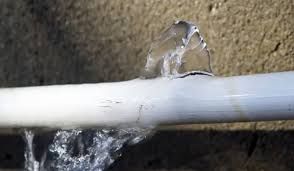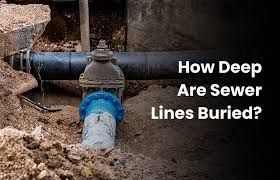Top Signs Your Garbage Disposal Needs Repair
Garbage disposals are the quiet workhorses of your kitchen, tirelessly grinding up food waste to keep your sink flowing smoothly and your pipes clog-free. But like any overworked hero, they can run into trouble over time. Knowing how your garbage disposal operates and spotting the warning signs early can save you from unnecessary stress—and some costly repairs. So, let’s break it down: what can go wrong, how to tackle it, and when it’s time to repair or say goodbye to your trusty kitchen companion
4 Ways to Unclog a Kitchen Sink
Understanding the Importance of a Garbage Disposal
A garbage disposal is more than just a convenient kitchen gadget—it’s a powerful tool that streamlines your cooking and cleaning routine while keeping your plumbing system in check. By breaking down food waste into smaller particles, it prevents clogs in your pipes, reduces household waste, and minimizes the environmental impact by diverting organic matter from landfills. Beyond practicality, a well-maintained disposal keeps your kitchen clean and odor-free, making it an essential appliance for modern homes. Recognizing its role in maintaining a functional and eco-friendly kitchen highlights why proper care and timely repairs are crucial.
Common Issues with Garbage Disposals
1. Jamming
A jammed garbage disposal is one of the most common problems. It happens when hard items like bones, fruit pits, or silverware accidentally get stuck in the blades. You might hear a humming noise as the motor struggles to turn, but forcing it can damage the internal mechanism.
2. Leaking
Leaks can occur from various spots, such as the sink flange, drainpipe, or unit itself. These are often caused by loose connections, worn-out seals, or cracks in the disposal unit. Left unaddressed, leaks can lead to water damage under your sink.
3. Slow Draining
If your sink drains slowly even when the disposal is running, it could be due to a clog in the disposal or the connecting pipes. This is often the result of food waste buildup, grease, or fibrous materials like celery or potato peels that shouldn’t go down the drain.
4. Strange Noises
Hearing grinding, rattling, or screeching sounds? This could indicate a loose part, a foreign object caught in the blades, or even worn-out components. Ignoring these noises can escalate the issue and potentially break the unit.
5. Foul Odors
Unpleasant smells from your garbage disposal usually mean that food particles are stuck and rotting inside the unit. Regular cleaning can help, but persistent odors might require a professional inspection.
When Do I Need a Repair?
It’s time to call for repairs if:
The disposal hums but doesn’t grind, signaling a jammed or faulty motor.
The unit trips the breaker frequently, indicating electrical or motor issues.
Water leaks from the base or connections but the disposal otherwise functions.
You notice reduced performance, such as weaker grinding power or frequent clogs.
Repairs are often the most cost-effective option for these minor but fixable issues, especially if your disposal is less than five years old.
When Do I Need a Replacement?
There are times when repairs just won’t cut it. Replacement is your best bet if:
The disposal won’t turn on at all, even after checking power connections.
The motor has burned out, and repair costs approach the price of a new unit.
The unit has cracks or extensive corrosion, causing persistent leaks.
Your disposal is over 10 years old and showing signs of wear, such as reduced efficiency or frequent breakdowns.
Upgrading to a newer model can also bring perks like quieter operation, more power, and energy efficiency.
Signs Your Garbage Disposal Need A Repair
1. Hearing Unusual Noises
If your garbage disposal starts making grinding, rattling, or screeching sounds, it’s a sign that something is off. These noises could mean a foreign object is caught in the blades or that internal components are loose or damaged. Don’t ignore it—turn off the unit and inspect it safely or call a professional to avoid further damage.
2. Experiencing Frequent Clogs
A garbage disposal that clogs often—even with small amounts of food waste—might have dull blades or an underlying blockage. This issue can strain the motor and lead to more severe problems. Consider a repair to restore its efficiency and prevent future clogs.
3. Dealing with Persistent Leaks
Leaks around the base, drainpipe, or sink flange indicate worn-out seals, loose connections, or cracks in the unit itself. Left untreated, these leaks can cause water damage under your sink. A quick inspection and repair can save you from costly plumbing fixes later.
4. Struggling with Power Issues
If your garbage disposal won’t turn on, keeps tripping the circuit breaker, or shuts off mid-use, it could be an electrical problem or a failing motor. Resetting the unit may help temporarily, but consistent issues require professional attention to avoid complete breakdowns.
5. Noticing Weak Performance
When your disposal no longer grinds food effectively or takes longer to process waste, it’s a sign the blades are dull, or the motor is weakening. Repairing these issues early can restore its performance without needing a full replacement.
6. Detecting Foul Odors That Won’t Go Away
Persistent bad smells, even after cleaning the unit, suggest food particles are trapped in hard-to-reach areas or that there’s buildup inside the disposal. A repair can help clean or address any internal issues causing the odors.
7. Seeing Water Backing Up
If water starts backing up into your sink while the disposal is running, it’s often due to a clogged or partially blocked drainpipe. Repairing the disposal and clearing the pipes can resolve the issue and keep your sink functioning smoothly.
8. Spotting Physical Damage
Cracks, rust, or other visible damage on your garbage disposal can lead to leaks or reduced performance. If the damage isn’t extensive, repairs can often restore the unit’s functionality, saving you from needing a full replacement.
When To Call A Plumber
- Unresponsive Unit: Your garbage disposal won’t turn on, even after resetting.
- Frequent Clogs: Regular blockages that cleaning can’t resolve.
- Persistent Leaks: Water pooling under the sink or dripping from the disposal.
- Unusual Noises: Grinding, rattling, or screeching sounds during use.
- Weak Grinding Power: The unit struggles to break down food waste.
- Backed-Up Sink: Water or waste backing up into the sink.
- Burning Smell: A sign of motor failure or electrical issues.
- Visible Damage: Cracks, rust, or loose connections on the disposal.
- Odors That Won’t Go Away: Persistent smells despite cleaning attempts.
- Safety Concerns: You’re unsure how to address the problem safely.
Conclusion
By following these maintenance tips, you can keep your garbage disposal in excellent working condition for years to come. A little care goes a long way in preventing breakdowns, saving you time and money on repairs or replacements. Keep it clean, use it wisely, and let it work its magic in your kitchen!
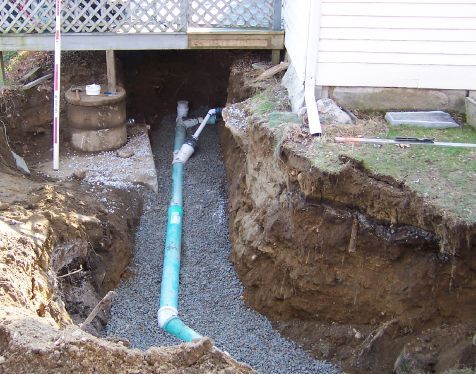
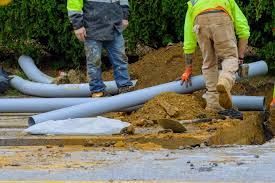
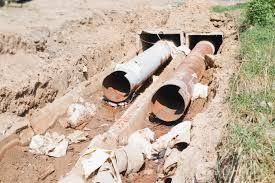
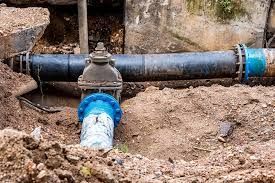

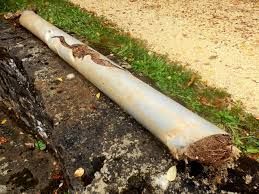
CONTACT INFORMATION
Office:
855-266-7682
Email:
service@AllCityPlumbers.com
Address: 6694 Oak Ridge Commerce Way, Austell, GA 30168
Business Hours:
Mon - Sun 24 Hours
OUR SERVICES
© 2022 All Rights Reserved|All City Plumbers Privacy Policy | Terms & Conditions | Sitemap

